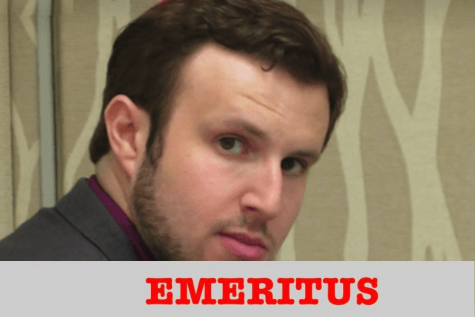A busy month for Shalhevet democracy
Students elect representatives and pass two major ballot measures in October.
October 30, 2010
Shalhevet’s representative elections were finally held Oct. 14 at lunch, but various problems caused delays and revotes across three out of four grades.
The sophomore vote was reheld Oct. 25, because in the original tally, more ballots had been cast than there are members of the class. Freshmen didn’t know who their representatives were until Oct. 18 because candidates had been allowed to run for positions on more than one committee, which was determined to be against school custom.
And no one in the senior class even ran for positions on three out of the four constitutional committees, leaving vacancies on Fairness, SAC and CCC, the Student Activities and Constructive Consequences committees, respectively.
“Committee elections were … poorly run as a result of a shorter lunch, numerous breaks in October and a lack of an Agenda Committee to work with” since slots had not yet been filled, said Agenda chair Toby Bern. “Now that elections are over, we’ll be able to press on and correct this for the future.”
Some of the problems may have been caused by an unusually high voter turnout, fueled by student interest in the proposed changes to the school bell schedule. The change would move dismissal time most days from 5 pm to 4:30. Hopes ran high among students who have been clamoring for years to shorten the school day, which starts at 7:50 a.m.
Students crowded around various separate tables in the foyer for freshman, sophomore and junior elections, and a separate one for the schedule election, making it difficult to tell that at least one table was running out of ballots.
The only vote to run smoothly was in the 11th grade, which had the fewest students voting. Juniors David Rokah and Shir Alkoby were elected to Agenda and their classmates Eitan Spitzer and Adam Ashkenazi to the Fairness Committee. Rachel Lester and Ariella Joffe were elected to SAC, the Student Activities Committee. Karen Tal, the grade’s only candidate for the dormant Constructive Consequences Committee (CCC), was elected by default.
In ninth grade, results for Agenda and Fairness representatives were delayed because Hannah-Leeba Ellenhorn was elected to both committees.
“Traditionally, students do not hold mutliple offices,” said Agenda advisor Dr. Jill Beerman, who oversaw the elections. “It’s a minhag.”
Ultimately, Hannah-Leeba chose Agenda and joined classmate Tamar Willis to serve on that committee. Robin Ashkenazi and Yael Gichtin will serve on Fairness.
Freshman Miriam Lelah won spots on both SAC and CCC, and chose to join Rebecca Elyasi as ninth grade SAC representative. Melissa Ohana won for the second CCC slot unopposed.
Ballot confusion may have caused the problem for the sophomore class. At first, there were not enough on hand, so some voters made their own handwritten sheets, but then when printed ones were made available later in the lunch period they thought they should vote a second time on the new ballots students submitted handwritten ballots. In the end, there were 66 ballots cast but only 54 eligible voters. Some of the ballots submitted were handwritten while others were multiple choice.
The sophomore vote was re-held nearly two weeks later on Oct 25. This time, 45 ballots were counted as Agenda chair Toby Bern and vice-chair Meshi Amzalag took extra care to ensure voters were only counted once. In this vote, Michal Vanunu and Gabi Golan took seats in Agenda and Rebecca Mandel and Talia Topper won for Fairness. Shirel Davidson and Leora Nimmer will be 10th grade SAC representatives and Emilie Benyowitz won unopposed for CCC.
The results of the schedule referendum were a landslide for Daniel Schwartz’s schedule, which moves dismissal time up from 5 to 4:30 most days. (See related story.)
About a week after representative elections, a vote was held regarding science and math teacher Mr. Chris Buckley’s proposed amendment to the Shalhevet constitution. His measure passed Wednesday Oct. 20 with nearly 96 percent of the vote of students, faculty and staff. The amendment, which lowers the vote percentage required to ratify new constitutional amendments from three-quarters to two-thirds, ironically needed the three-quarters to pass.
“I’m elated,” said Mr. Buckley. “Shalhevet’s constitution clearly outlines a separation of powers similar to the United States’ constitution. Our new amendment brings our constitution closer to that.”
The measure will also require that three out of the four grades each pass amendments by majority vote. Mr. Buckley introduced it in Town Hall Oct. 15 in response to a barrage of amendment proposals regarding the Fairness committee.
It was the first amendment proposed since then-sophomore Jeremy Lowe tried to make it possible for juniors, and not just seniors, to run for committee chair in 2008. That amendment fell only two or three votes short of ratification, though it received 71 percent of the vote.
“This was an important step, particularly since Jeremy’s amendment had 71 percent and failed,” said Mr. Buckley. “I knew something was wrong with the constitution’s structure and had to be fixed.”













